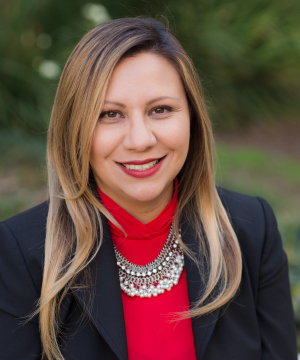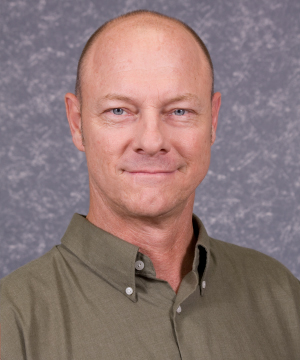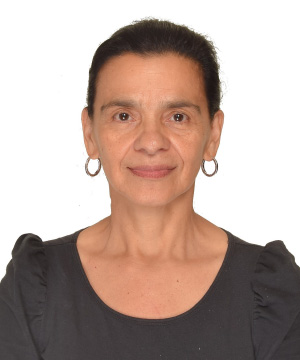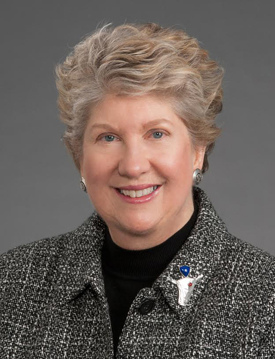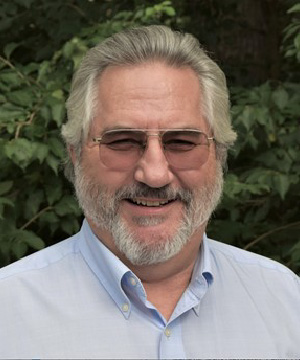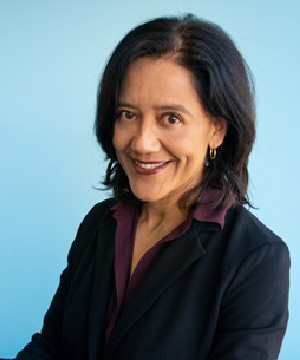- Who We Are
- Clinician Employment
- Publications
- Witness to Witness (W2W)
- Kugel & Zuroweste Health Justice Award
- Your Voice Matters: Photovoice Project
Deyanira
Deyanira Nevarez Martinez tiene un Ph.D. en Planificación y Política Urbana y Ambiental de la Universidad de California, Irvine. Actualmente es miembro de la facultad en el Departamento de Planificación Urbana y Regional en la Escuela de Planificación, Diseño y Construcción de la Universidad Estatal de Michigan. Su investigación se centra en el papel del estado en la vivienda informal y precaria, como las colonias de la frontera entre Estados Unidos y México. Un tema importante en su obra es la criminalización de la pobreza. Además, su trabajo ha analizado temas de gentrificación, equidad racial en el uso de la tierra y el transporte, segregación racial y reforma de la libertad bajo fianza.
Paul
Paul Monaghan, PhD, es profesor asociado en la Universidad de Florida en el departamento de Educación y Comunicación Agrícola. También tiene un nombramiento en el Centro para la Eficiencia en el Uso de la Tierra (CLUE) y es miembro fundador de la facultad del Centro Costero del Sureste para la Salud y Seguridad Agrícola. Se especializa en mercadeo social basado en la comunidad y utiliza la metodología para desarrollar programas de investigación y extensión enfocados en el comportamiento y el cambio social. Paul tiene un doctorado en Antropología y una Maestría en Estudios Latinoamericanos, ambos de la Universidad de Florida y ambos basados en investigaciones realizadas en Haití. Ha llevado a cabo una extensa investigación con trabajadores agrícolas en Florida, incluidos recolectores de vegetales y cítricos y trabajadores de viveros. También ha realizado investigaciones participativas con poblaciones urbanas, examinando el acceso a los alimentos y la conservación de la energía entre comunidades desatendidas e históricamente marginadas.
Chela
Chela Vázquez works for the Upper Midwest Agricultural Safety and Health Center (UMASH) at the University of Minnesota, Minneapolis, MN. Chela is the Coordinator and Trainer, Immigrant Dairy Worker Health and Safety Project, UMASH – Schools of Public Health, University of Minnesota. Chela trains Spanish-speaking immigrant workers on dairy farms using a bilingual health and safety training curriculum, Seguridad en Las Lecherías: Health and Safety of Immigrant Dairy Workers, which was developed in Wisconsin and currently it is being implemented in Minnesota. The trainings address health and safety issues on dairy farms, and focus on improving the occupational health and safety of immigrant dairy workers. Prior to taking her role at UMASH, Chela worked with farm workers and rural communities at Centro Campesino in Owatonna, MN, and with Pesticide Action Network in California and Southeast Asia.
Sara
Sara A. Quandt, PhD, is Professor of Epidemiology and Prevention at Wake Forest School of Medicine. She is also Associate Director of the Center for Worker Health. She received her PhD in anthropology with a minor in human nutrition from Michigan State University. Quandt’s research focuses on health disparities with rural and minority communities, with a concentration on occupational health and safety of immigrant workers. She has directed NIH- and NIOSH-funded CBPR studies with farmworkers and poultry processing workers. She recently directed directs a study of women and children in farmworker families designed to understand determinants of early childhood obesity, she is an investigator for a study of child farmworkers’ health and safety, and she participates in the PACE study of pesticides and farmworkers, now in its 24th year. She is the author of over 400 journal articles and 31 book chapters. Quandt’s commitment to health research has been recognized by the National Rural Health Association (Outstanding Rural Health Research Award in 2007), the Washington Association of Practicing Anthropologists (2003 Praxis Award for excellence in applied anthropology), and the National Institute for Occupational Safety and Health (2006) National Occupational Research Agenda Innovative Research Award for Worker Health and Safety. She was awarded the Defender of Justice Award in 2017 by the North Carolina Justice Center.
Rubén
Rubén O. Martinez is the Director of the nationally renowned Julían Samora Research Institute at Michigan State University in East Lansing, Michigan. He is a nationally known scholar with expertise in the areas of higher education, race and ethnic relations, and diversity leadership. His research focuses on leadership and institutional change, education and ethnic minorities, youth development, and environmental justice. He is the editor of the Latinos in the United States book series with Michigan State University Press. He has co-authored the books A Brief History of Cristo Rey Church in Lansing, MI, Chicanos in Higher Education and Diversity Leadership in Higher Education. He also edited the volume Latinos in the Midwest and co-edited the books Occupational Health Disparities among Racial and Ethnic Minorities and Latino College Presidents: In their own Words, in which selected Latinos and Latinas share personal insights and experiences on their pathways to their presidencies at colleges and universities in the U.S. He has lectured widely across the country, including presentations at the Center for Advanced Study in Behavior Science at Stanford, Johns Hopkins University, the University of Colorado, University of Michigan, and at many professional conferences. He has served for many years on various university faculty senates and academic councils, and has made many far-reaching contributions to our nation’s higher education enterprise through his distinguished professional service as President of the Western Social Science Association, as member of the AASCU and ACE leadership institutes, as a consultant-evaluator with higher education accreditation associations, and as a member of the HACU-ETS Policy Fellowship Program. Rubén Martinez is widely recognized for his extensive scholarly achievements, his consulting work in higher education and community research projects, and his participation in high-profile projects sponsored by key entities such as the W. K. Kellogg Foundation, the Ford Foundation, the Pfizer Foundation, the Anne E. Casey Foundation, and the Hispanic Association of Colleges and Universities. He is one of our nation’s leading sociologists of higher education, who is not only a prolific, creative, and influential scholar but also a deep and sophisticated thinker on the most vexing issues facing our communities and institutions of higher learning, including the issues of culture, identity, social justice, excellence, accountability, diversity, and leadership.
Luis
Dr. Luis H. Zayas is the Dean and Robert Lee Sutherland Chair in Mental Health and Social Policty at the School of Social Work of The University of Texas at Austin. He holds a master’s in social work and a doctorate in developmental psychology from Columbia University. Dr. Zayas has devoted his career as a clinician, teacher, and research to child and adolescent development and family functioning. Under the overarching framework of Hispanic mental health, he focuses on two areas of research. One area is on the suicide attempts of young Latinas, a group that has the highest rates of suicidal behavior of any youth group in the U.S. From his work in this area, he authored Latinas Attempting Suicide: When Culture, Families, and Daughters Collide (Oxford, 2011). The other area of focus is the development and mental health of U.S. citizen-children of undocumented Latin American parents. Presently, Dr. Zayas is completing a study of the impact of parents’ legal status and detention/deportation on citizen-children.
Harry
Dr. Zhang is an Associate Professor in the School of Community and Environmental Health at Old Dominion University in Norfolk, Virginia. He received his B.A. in economics from Fudan University in China and his Ph.D. in economics from the University of Alabama. Prior to joining the faculty at Old Dominion University in 2005, he worked at the University of Chicago for four years as a research associate. As a health economist, he has an active research agenda on socioeconomic determinants of health and health disparities. He has more than 30 publications in international journals and has been a Principal Investigator or Co-Investigator on multiple grants funded by NIH and USDA. He serves on the editorial board of four international journals and as a manuscript reviewer for 32 academic journals. He has been on the Scientific Committee of the International Health Economics Association (iHEA) since 2007. He is a standing member of the grant proposal review panel for the Agency for Healthcare Research and Quality (AHRQ)/U.S. Department of Health and Human Services (DHHS) and an ad hoc proposal reviewer for the U.S. Department of Agriculture (USDA). He has served in leadership positions for multiple professional organizations, including Chair of China Health Policy and Management Society (CHPAMS) and Board of Directors of Chinese Economist Society. He was born in Shanghai China and is a first-generation immigrant in the U.S.
Polly
Pauline (Polly) Turner Strong, PhD, is Professor of Anthropology and Director of the Humanities Institute at the University of Texas at Austin. A native of Denver, Colorado, Dr. Strong has taught at the University of Texas since 1993. She received her bachelor’s degree in philosophy from Colorado College, and her PhD in sociocultural anthropology from the University of Chicago. Her expertise includes gender, class, ethnicity, organizational culture, youth culture, community participatory research, and the medical humanities. Her most recent book, American Indians and the American Imaginary, was published in 2012. As director of the Humanities Institute she leads interdisciplinary programs that bridge divisions between campus and community, including initiatives in violence and the humanities, social medicine and the medical humanities, and community-based research. She has received several awards for her teaching and mentoring at both the undergraduate and graduate levels.
Myra G
Maria de Jesus
Maria de Jesus Diaz-Perez is the director of public reporting at the Center for Improving Value in Health Care (CIVHC). Maria has a doctoral degree in Health and Behavioral Sciences from the University of Colorado and a Masters in Social Psychology from the National Autonomous University in Mexico City. Maria´s professional career has included research, program design, management and evaluation with the overall goal of increasing access to equitable and high-quality primary health care for socioeconomically disadvantaged populations, particularly immigrants. Maria is a fellow at the Robert Wood Johnson Foundation Interdisciplinary Research Leaders Program.
Diane
david
Monica
Maria



